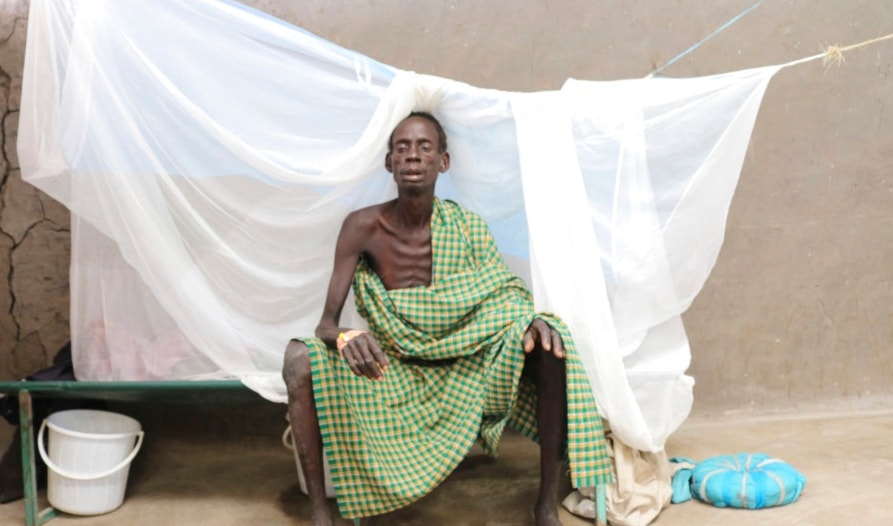Following US aid cuts, 8 die in South Sudan in search of medical help
Eight people with cholera, including five children, have died following a three-hour walk in search of medical help as the US funding cuts take effect in Africa.
-

Machar Weituor sits on his bed at a cholera clinic in Pieri, South Sudan, on Wednesday, June 28, 2017. (AP)
Eight people, including five children, died in South Sudan after a three-hour walk to seek medical help for cholera following the closure of local health services due to US aid cuts, the UK-based charity Save the Children reported on Wednesday.
The deaths, which occurred last month, are among the first linked directly to funding reductions ordered by US President Donald Trump after taking office on January 20, part of an effort to align foreign aid with his "America First" policy.
"There should be global moral outrage that the decisions made by powerful people in other countries have led to child deaths in just a matter of weeks," said Christopher Nyamandi, Save the Children’s Country Director in South Sudan.
Experts have cautioned that the funding cuts, which include the termination of over 90% of USAID contracts, could result in millions of preventable deaths in the coming years from malnutrition, AIDS, tuberculosis, malaria, and other diseases.
Meanwhile, the US State Department said it had no information on the deaths cited by Save the Children, with a spokesperson claiming that while many US-backed humanitarian programs in South Sudan remain operational, assistance for medical services had, in some cases, allegedly been misused by the country’s leadership.
"While emergency lifesaving programmes continue, we will not, in good conscience, ask the American taxpayer to provide assistance that effectively subsidises the irresponsible and corrupt behaviour of South Sudan’s political leaders," the spokesperson said.
South Sudan's government has previously admitted to widespread corruption but denied specific graft allegations, including those involving President Salva Kiir’s family. However, due to ongoing concerns about corruption, humanitarian aid is typically delivered through non-governmental organisations rather than state institutions.
Read more: African countries scramble to stop the hemorrhaging triggered by Trump’s ‘ruthless’ health aid cut
An imminent humanitarian crisis
Save the Children said it had supported 27 health centers in Jonglei State, eastern South Sudan, until US aid reductions earlier this year forced seven to close entirely and left 20 only partially operational.
Transportation services funded by the US to help patients reach hospitals in the main town were also suspended due to budget constraints. As a result, eight cholera patients had to make the journey on foot in nearly 40°C (104°F) heat to reach the nearest functioning facility, the charity said.
Three of the children who died were under five, Nyamandi added.
In addition to US cuts, gradual pullbacks from other donors have also strained the country’s humanitarian operations. Save the Children expects to spend $30 million in South Sudan in 2025, down from $50 million in 2024, according to Nyamandi.
More than a third of South Sudan’s approximately 12 million residents have been displaced by conflict or natural disasters. The UN has warned that the country may be heading toward another civil war after renewed fighting broke out in the northeast in February.
A cholera outbreak declared last October has already led to over 22,000 reported cases and hundreds of deaths, according to the World Health Organization.
To further exacerbate the crisis, the United Nations World Food Programme (WFP), which depends on US contributions for nearly half of its funding, announced that it is shutting down its southern Africa bureau due to financial constraints. The decision comes as the region grapples with a severe drought.

 4 Min Read
4 Min Read










